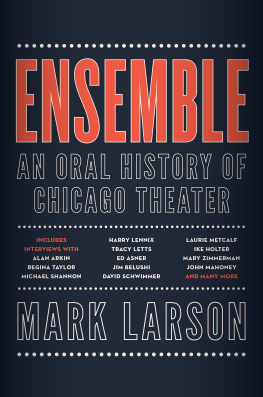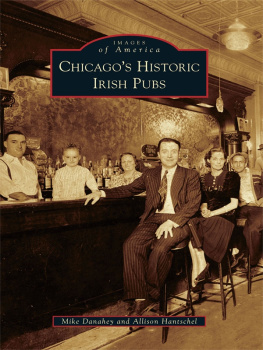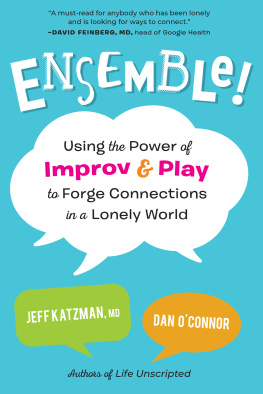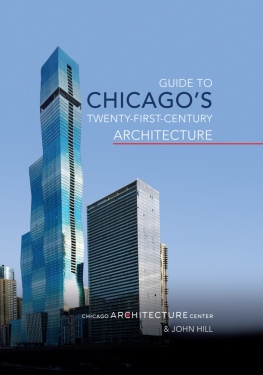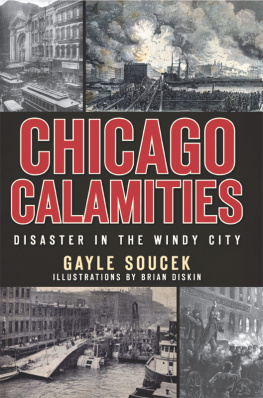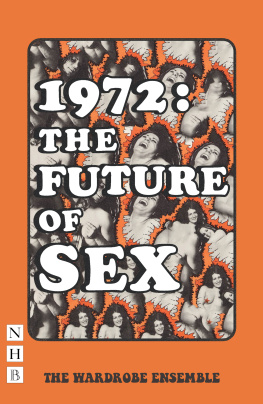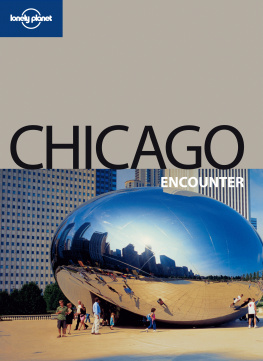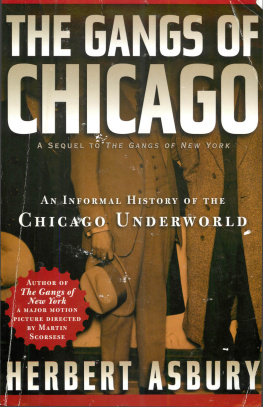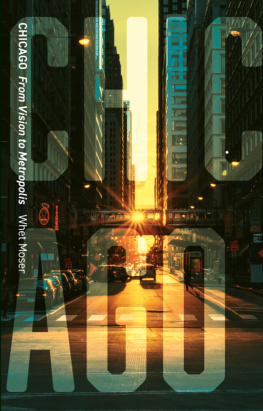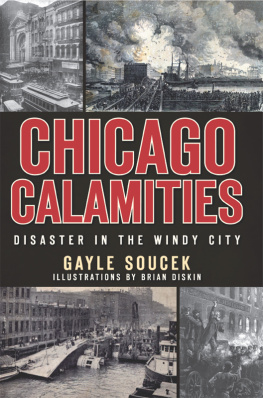
ENSEMBLE
ENSEMBLE
AN ORAL HISTORY
OF CHICAGO THEATER
MARK LARSON
Copyright 2019 by Mark Larson
All rights reserved. No part of this book may be reproduced or transmitted in any form or by any means, electronic or mechanical, including photocopying, recording, or by any information storage and retrieval system, without express written permission from the publisher.
Any views expressed herein are solely those of the author. This book is in no way authorized, prepared, approved, or endorsed by the people, organizations, or brands mentioned herein.
Printed in the United States
10 9 8 7 6 5 4 3 2 119 20 21 23 24
ISBN-13: 978-1-57284-234-2 (hardcover)
ISBN-10: 1-57284-234-2 (hardcover)
eISBN-13: 978-1-57284-805-4 (ebook)
eISBN-10: 1-57284-805-7 (ebook)
Jacket design by Morgan Krehbiel
Midway Books is an imprint of Agate Publishing. Agate books are available in bulk at discount prices. For more information, visit agatepublishing.com.
For Mary, Sarah & Emily,
Jodie, Dorothy & Roy Larson
And with gratitude for the gift of their character to
Studs Terkel, Richard Christiansen, and Joyce Piven

In Chicago, we werent going to get rich, and we werent going to get famous, so we just got good.
AMY MORTON, STEPPENWOLF THEATRE COMPANY

Contents
by Brad Hall and Julia Louis-Dreyfus






Foreword
By BRAD HALL and JULIA LOUIS-DREYFUS
W E HAD HOPED TO ENJOY A HAPPY LITTLE STROLL DOWN memory lane in Mark Larsons Ensemble, but we got so much more. Oh, we got the memory lane partthe Practical Theatre chapter (which, naturally, should be read first) is insanely nostalgic for usand Mark also provides a complete history of theater in Chicago from 1953 to the present day. The lasting impression of the book, however, is something else altogether.
Ensemble, told with the voices of Chicagos theater artists of today, yesterday, and tomorrow, is a remarkable rumination on just that: the ensemble. The connections onstage and off among actors, writers, technicians, designers, directors, mentors, and audience are cleverly drawn. It is no surprise to find that there is great affection among members of a theater community. What is surprising is that, in Chicago, these connections are so passionately felt that they have become the DNA of show after show, company after company. The joy in creative labor itself is derived fromand simultaneously given over tothe ensemble. To working together. The result is an entirely unique and precious thing: Chicago Theater.
Weve always known that Chicago produces much of the absolute best of everything theatrical. Heres just one example: Veep actors. Gary Cole, Kevin Dunn, Julia Louis-Dreyfus, David Pasquesi, Tim Simons, Matt Walsh, and guest star after guest starall have that Chicago DNA. Coincidence? No way. And here, Mark Larsons collected voices go a long way toward explaining the depth and breadth of Chicagos influence. If you were there then (or are there now), a big part of the deliciousness of the book is in the names that leap off the page. We found ourselves often in tears (Sheldon Patinkin, Martha Lavey, Larry Sloan), in hysterics (Rush Pearson, John Malkovich), and in awe (Frank Galati, Bob Falls, Laurie Metcalf). Just the dear pals who are featured (Paul Barrosse, Gregory Mosher, Don Moffett, Jeff Perry, et al.) make reading the book a pleasure. Even if your connection to Chicago theater is from afar, Ensemble will draw you inside a world where the play really is the thing and where the stories are filled with insight, intelligence, and honestyjust like Chicago theater itself.
What a neat trick Mark has pulled off here: his humble, loving hand has guided all of these witnesses into confessions that illuminate a Chicago engine of creativity that is wholly unique in American theater history. The sort of assembling evident in Ensemble takes real skill, and Mark Larsons done it.
You are in for a treat.
Brad Hall and Julia Louis-Dreyfus
Preface
A DO-IT-YOURSELF MOVEMENT
T HE CHICAGO THEATER MOVEMENT AND I ARE ABOUT THE same age, if you mark its inception, as I do in this book, with the founding of Playwrights Theatre Club in 1953. Its hard to imagine today, but prior to that, Chicago theatergoing audiences choices were limited to community theaters, summer stock, and the large touring shows from New York. Chicago was, as director Bob Sickinger once observed, a theater desert.
But in the early 50s, a convergence of nascent talent at the University of Chicago triggered a new theater movement that changed everything. A young director named Paul Sills met a restless and determined producer and director named David Shepherd. Together they created Playwrights from a dream of Sillss to develop a repertory theater company, aided by some inheritance money of Shepherds. Playwrights Theatre Club soon attracted a handful of extraordinary actors in the first moments of their careers, including Mike Nichols, Elaine May, Barbara Harris, Joyce Piven (ne Hiller), Byrne Piven, Ed Asner, Fritz Weaver, and Sheldon Patinkin, then 17 years old. In just two years, they produced some 24 classic plays, first at the Reynolds Club at the University of Chicago and then in one of Chicagos first storefront theaters, a Chinese restaurant they renovated on LaSalle Street, not far from where The Second City is now. When that venture disbanded in 1955, Shepherd had a chance to create his own dream idea, the one he had come to Chicago to seed: the Compass Players, Americas first improvisational theater of its kind. Compass lasted just 18 months, but its impact would be seismic, not least of all because it led to the establishment in 1959 of a cabaret in a converted Chinese laundry on Wells Street, across the street from the Hotel Lincoln. Founders Paul Sills, Bernie Sahlins, and Howard Alk called it The Second City.
Next page
